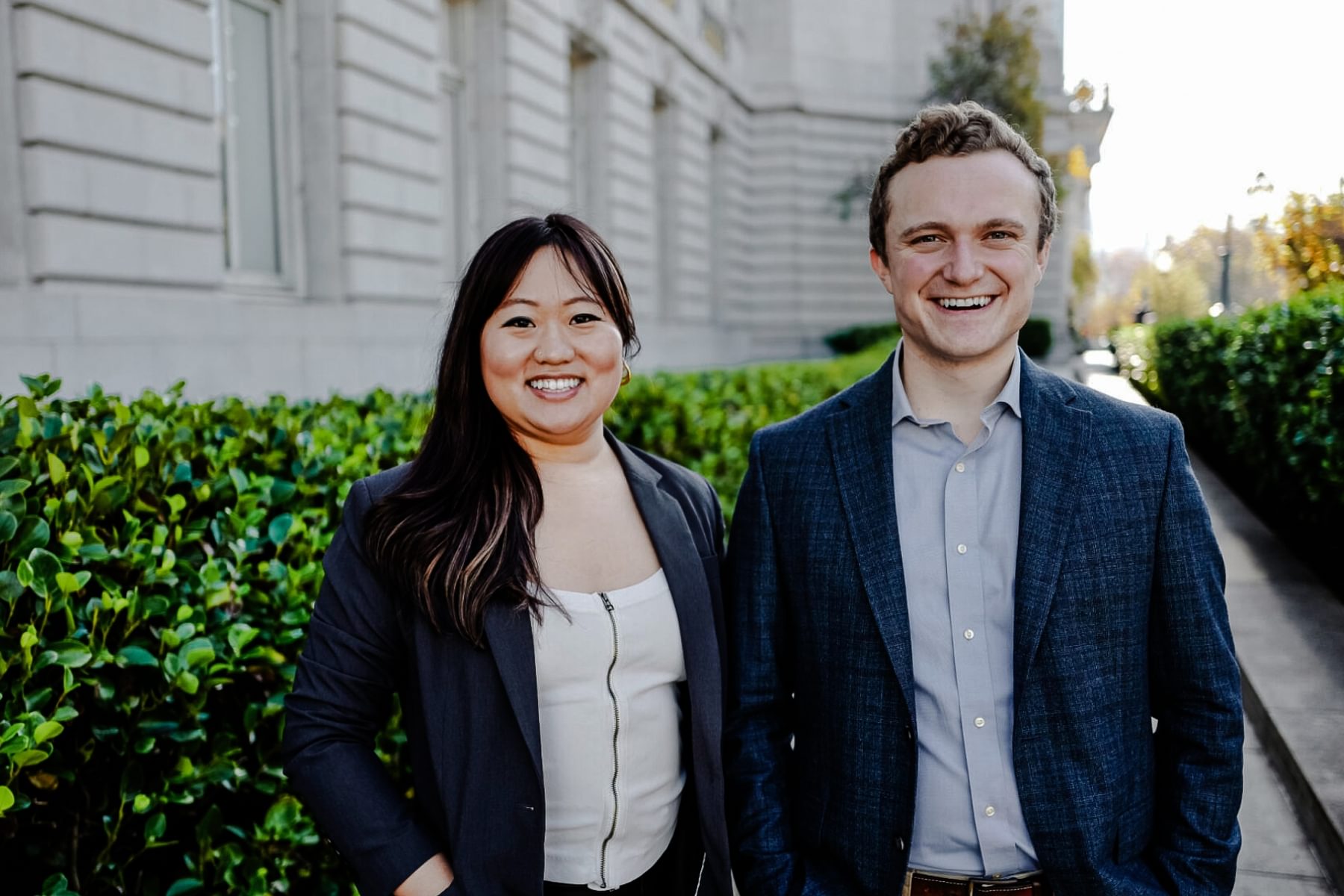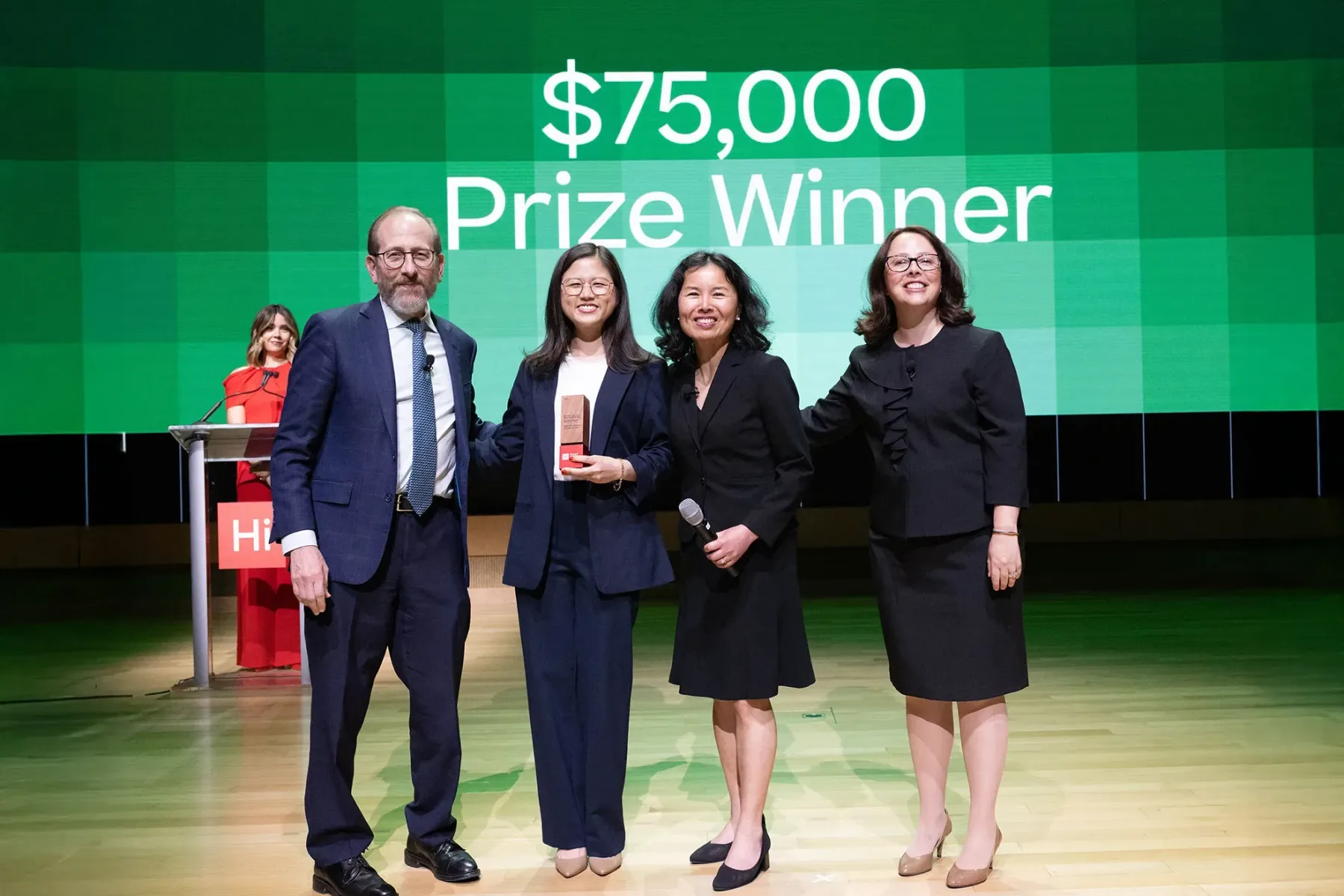In March 2020, the Harvard Innovation Labs launched a new series of interviews with a diverse group of women founders across Harvard’s student and alumni community. We asked these founders about their recent wins, their core values, their views on equity and justice, and what keeps them going through the highs and lows of entrepreneurship. Their answers always inspired us. In a year that the i-lab also had to be 100% virtual, we were delighted to find a way to connect women entrepreneurs in our community to each other.
This month, we’re celebrating Black History Month by featuring Black women founders’ voices and perspectives. Read on for short interviews with founders at all stages of the entrepreneurial process. We will continue to update this edition of #womenledwednesdays throughout February.
For more ways to celebrate Black History Month, check out a full calendar of events across Harvard. Be sure to also check out the Map of Inclusive Spaces and Symbols (MISS), Summit: Pathways to a Just Digital Future, and Race, Work, and Leadership: New Perspectives on the Black Experience, a collection of essays that came out of the HBS Gender Initiative’s 2018 Gender & Work Symposium.
Britney Foster and Dr. Troya L. Ellis: Trajectory of Hope
Britney Foster (Harvard Divinity School, Class of 2019) and Dr. Troya L. Ellis are Co-Founders of Trajectory of Hope, a social impact start-up that drives organizations to dismantle oppressive structures that uphold systemic racism. Founded in 2018, Trajectory of Hope works primarily with educational organizations to fuel institutional change through three levers: Research & Data Analysis (to conduct comprehensive needs assessments and program evaluations), Affinity Circles (to create space for reflection and collective action), and Coaching and Development (to deconstruct implicit bias).
After the brutal and public murder of George Floyd in May 2020, people became more receptive to Trajectory of Hope’s mission. “This country has experienced a moral awakening,” Foster and Ellis say. “People are more primed to acknowledge racial bias and the effects and impact it has in every facet of our society.” Trajectory of Hope’s unique program guides teams in creating the kind of internal change necessary to transform external behavior. In recent months, they have expanded their partnerships with school communities in Los Angeles, Boston, and Montclair, New Jersey, helping them uncover bias and rectify racial inequities.
If you could change anything about the resources going to women entrepreneurs right now, what would it be?
“We need more visibility, accessibility, and inclusivity when it comes to those resources. Ideally, there would be less red tape and hoops to jump through to access the resources and networks that support women entrepreneurs. The fellowships, incubators, and accelerators seeking to promote women in entrepreneurship often favor applicants with existing social connections and networking relationships with sponsors and ‘gate-keepers’.”
Who are the leaders that inspire you? Why?
“We continue to look up to and feel inspired by our fellow i-lab alum, Joanna Smith, the Founder and CEO of AllHere, an education start-up focused on decreasing chronic absenteeism that highlights the importance of school attendance… Joanna has taken us under her wing and graciously mentored us along our founders’ journey. Additionally, the scholarship and literature of Bettina Love (We Want to Do More Than Survive: Abolitionist Teaching and the Pursuit of Educational Freedom) and Jennifer Eberhardt (Biased: Uncovering the Hidden Prejudice That Shapes What We See, Think, and Do) continue to inform our work and approach to dismantling racism in the educational space.”

Samantha Pratt: KlickEngage
Samantha Pratt (Harvard Graduate School of Education, Class of 2019) is Founder and CEO of KlickEngage, an edtech company on a mission to help all students feel psychologically safe and supported in any environment. Focused on mitigating the impacts of complex trauma on student learning, the KlickEngage team uses a holistic approach to resource students (grades three through eight) and end educational inequities. KlickEngage’s core product is an app that allows students to self-report their sense of well-being to teachers through a quick survey. In response to COVID19, KlickEngage also created a new bank of resources “KE ToolKits™" for families and teachers working to better support students. How is KlickEngage unique? They provide actionable insights into student moods that, Pratt says, results in increased access to interventions and improved self-regulation.
Currently a member of Launch Lab X GEO at Harvard Innovation Labs, Pratt also recently graduated from AT&T’s Aspire Accelerator. In January, Pratt was named by Smithsonian Magazine of one of the 10 Innovators to watch in 2021. She is proud to say that KlickEngage just kicked off their pre-seed fundraising round.
If you could change anything about the resources going to women entrepreneurs right now, what would it be?
“FUNDING! Throughout 2020, I read tons of articles and announcements from large corporations and VCs about their plans to diversify their portfolios and channel more funding to minorities and women. However, it's not enough to set aside the money; the process for vetting companies also needs to be more equitable. For example, women funders should not be pushed harder on unit economics during pitches than male founders, which is something that currently happens consistently.”
Who are the leaders that inspire you and why?
“This is hard because I have so many amazing women in my network that are doing important work. If I had to name a few: Vanessa Gil, Shante Elliott, Brandy Williams, Brittany Young, Martha Hernandez, Nicole Cardoza, Sopie Shrand, Yulkendy Valdez, Irma Mesa, and Joanna Smith. All of these women of color are running mission-driven organizations that will change the lives of children and young adults.”

Omolara Fatiregun: Thrive!
Omolara Fatiregun (Harvard Graduate School of Education, Class of 2022) is Founder of Thrive!, which works with local governments to move money and power where they belong. Thrive! has developed 60+ measures for an algorithm that quantifies a jurisdiction’s commitment to equity based on spending patterns across agencies. Thrive!’s Equity Audit measures include evidence-based approaches that have been scientifically proven to break cycles of poverty like two generational interventions that upskill parents while providing academic, social, and emotional support to kids inside and outside of school. Thrive! also measures authentic power sharing with communities of color. Today, Thrive! is working with local governments in communities of color in New York, Massachusetts, and Vermont. They are in conversations about launching equity audits with local governments and independent school districts in California, Pennsylvania, Georgia, Iowa, Michigan, Maryland, and New Mexico.
Featured in Boston Globe Business on January 17th, just before Dr. Martin Luther King Day, Fatiregun says the significance of the day was not lost on her. She says her deepest desire is to “lead Thrive! in pressing toward the aspirations that Dr. King had for this country—racial equality and the dismantling of economic injustice.” Fatiregun is the recipient of Harvard’s Presidential Public Service Fellowship and the Harvard Kennedy School New World Social Innovation Fellowship sponsored by the Social Innovation + Change Initiative. In 2020, Thrive! also received a Spark Grant for racial justice and a Social Innovation Fellowship Fund award.
If you could change anything about the resources going to women entrepreneurs right now, what would it be?
“I think in the U.S., we are setting the equity and inclusion bar too low. I’m psyched about Bumble’s IPO. Bumble is a company founded and led by women while guided by a predominately female board of directors which even includes a woman of color. Wow! This is unheard of in American business, particularly in tech. According to a recent report from the BBC, Nigeria (the homeland of my parents) ‘has the highest number of female entrepreneurs in the world, as forty percent of Nigerian women are entrepreneurs, which is higher than anywhere else in the world.’ Let us celebrate the movement we as a nation are making in the area of equity and inclusion while also realizing that we are crawling at the same time that other countries are sprinting. America is a great nation and when we achieve our full potential—by harnessing the brilliance of women and all people of color—we will be even greater.”
Who are the leaders that inspire you? Why?
“People know about the keen business acumen of Oprah, Beyonce, and Serena Williams so it’s obvious why I admire these giants. I’m also inspired by the story of the social entrepreneur Yasmin Belo-Osagie. Belo-Osagie was born in the U.S., raised in Nigeria, and graduated from Princeton, Harvard Law School, and Stanford Business School. Named among the “20 Youngest Power Women in Africa” by Forbes in 2014, Belo-Osagie is co-founder of She Leads Africa. Her Nigeria-based social enterprise scaffolds African women through their journey to become entrepreneurs with knowledge, networks, and money. I love everything about this venture. Women supporting women is how we will change the world.”

Shannon Hawkins: Leading A(head) Collaborative
Shannon Hawkins (Harvard Graduate School of Education, Class of 2021) is Founder of Leading A(head) Collaborative (LAC), an equity-centered organization working to dismantle systemic educational barriers through family-school partnerships so that children can grow up whole. Hawkins came up with the idea for LAC in 2015 when, while serving as an educator, she recognized the importance of community support for Black children centered in radical joy and healing. Incorporated in 2021, LAC’s goal is to partner with families, educators, and community members to co-create intentionally designed educational communities that prioritize empathy, advocacy, and liberation. Hawkins was inspired to create Leading A(head) Collaborative by her mother, she says, who helped her navigate the U.S. educational system as a first-generation Jamaican American and advocated for her every step of the way.
Hawkins is currently developing Leading A(head) Collaborative in the Harvard Innovation Labs Build It program and is focused on finding mission-aligned collaborative partners. This month, LAC was selected as a semi-finalist for the Harvard Innovation Labs President’s Innovation Challenge (winners will be announced at the virtual awards ceremony in May 2021). To recognize Valentine’s Day and Black History Month, LAC hosted a virtual gathering on February 14th, “Celebrating Black Motherhood: Mommy & Me” focused on community-centered healing through the arts. Attendees were invited to create a theatrical performance, visual art, creative writing, or dance performance emphasizing “radical joy, ease, and the beauty of their identities.”
If you could change anything about the resources going to women entrepreneurs right now, what would it be?
“There are enormous disparities for Black women and women-led entrepreneurs regarding philanthropic funding. If I could change the resources going to Black and women-led entrepreneurs, I’d want philanthropists to assess the organizations and leaders who receive the most funding, why that is, and then determine how they can create more equitable pathways to resources for women-led ventures.”
Who are the leaders that inspire you and why?
“I am inspired by the courage and tenacity of Stacey Abrams, a Black woman who is confident in her identity, knows what she’s here to do, and works to advocate alongside her community. As I continue to develop my organization to address educational inequities, I look to women like Stacy Abrams to remind me to center the needs of my community and move in radical hope that our collaborative efforts will produce culture change.”






